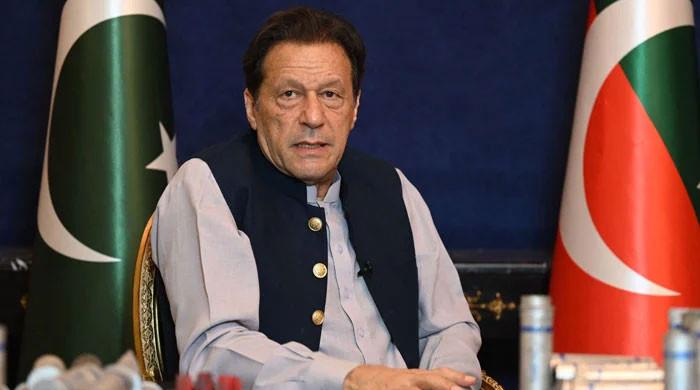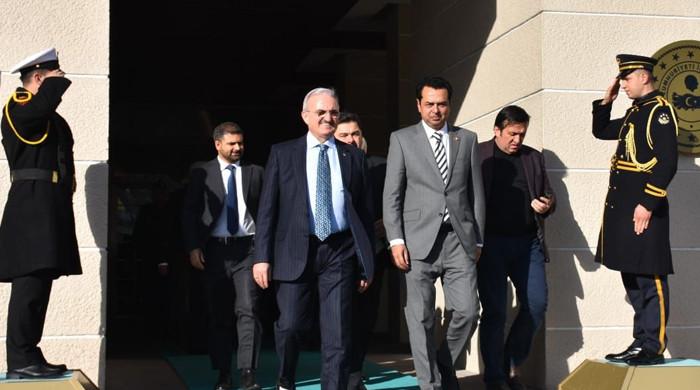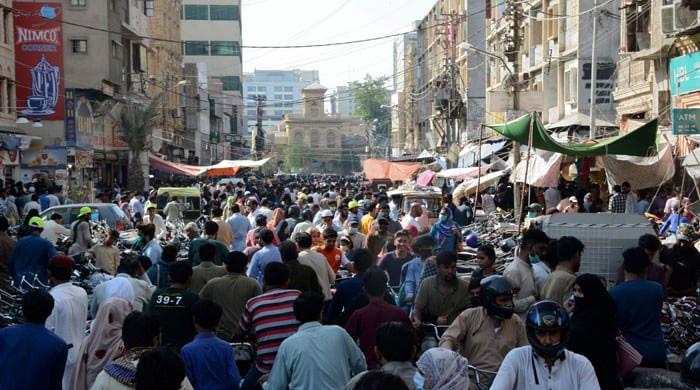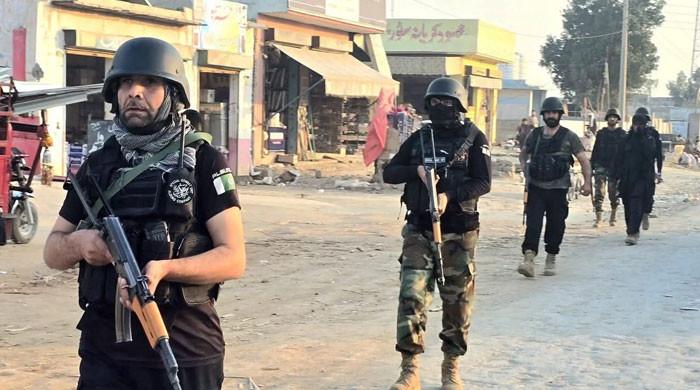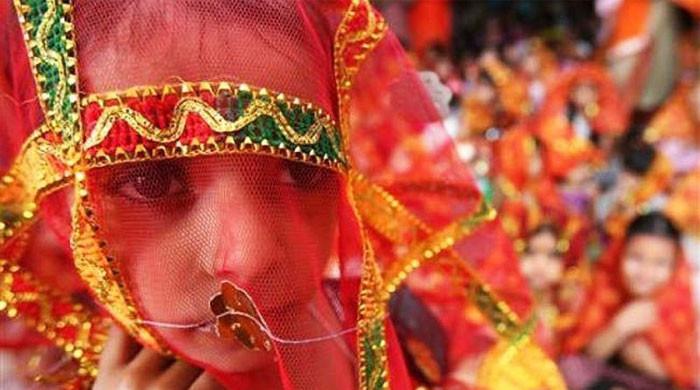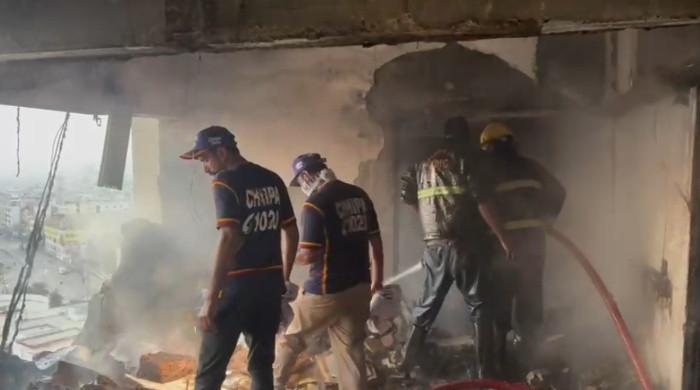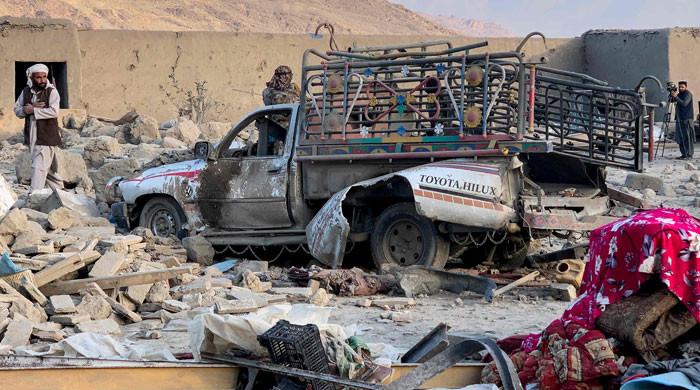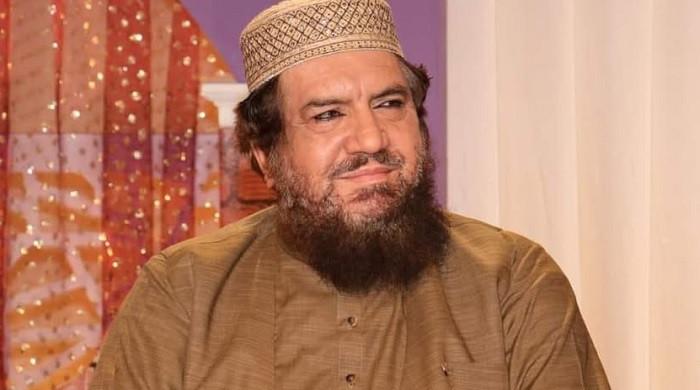Interior minister calls emergency meeting of scholars over Islamabad protest
The consultative meeting is the government's latest effort to bring the protest to an amicable end
November 19, 2017
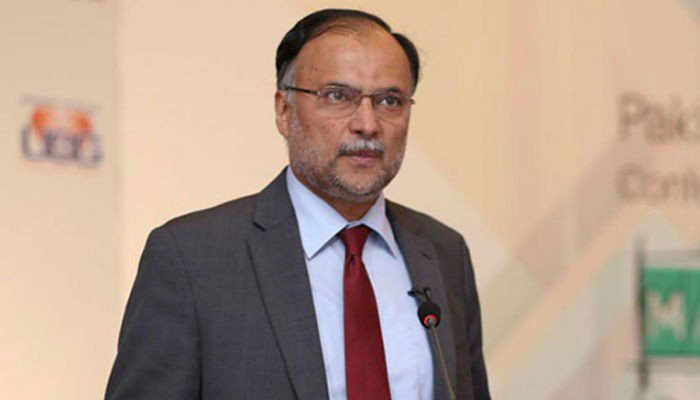
ISLAMABAD: Interior Minister Ahsan Iqbal on Sunday called an emergency meeting of religious scholars belonging to all schools of thought over the ongoing protest in Islamabad.
The consultative meeting, to be held tomorrow, is the latest effort on behalf of the government to bring the protest to an amicable end.
Earlier today, Iqbal had said that all options were available for dispersing the Islamabad protest, adding that a security operation is the last option as the government will try to avoid bloodshed.
Addressing the media alongside State Minister for Religious Affairs Amin Hasnat Shah, Iqbal had said the government will go "to any extent" to resolve the issue, including a security operation, adding that protesters blocking the Faizabad Interchange are engaging in a propaganda to incite emotions of the people.
"Our forces have the capability to clear the area but we are keeping the operation as the last option. This is not a sign of weakness but we are doing this out of respect [for the matter of finality of Prophethood]."
The protest has nothing to do with religion or religious demands and "such organisations" take these steps to advance ahead of elections, he had said.
"The protesters demand that Law Minister Zahid Hamid should step down; however, there is no proof that he is responsible for the mistake. A committee has been formed in this regard which will probe the matter so there is no justification for the protest," he had said.
In response to a question, the minister had said that intelligence reports are available that some elements among the protesters want the government to take action so they can further their hidden agenda.
He had also stated that the government is fully capable of countering the protesters but has chosen restraint instead.
The interior minister had reiterated that the government firmly believes in the Khatm-e-Nabuwwat (finality of Prophethood) law, adding that Parliament and nation are united on the matter.
"It is settled forever [for Pakistan] that a person who doesn't believe in the finality of Prophethood has no right to call himself Muslim. All political parties unanimously passed the law in this regard. There is no justification now for the protest to continue," he said.
Calling upon protesters once again to call off the sit-in, he had said that he hopes they will agree to the suggestions made by the religious personalities included in talks, adding that now he himself is conducting contempt of court by allowing the protest to continue.
"I requested the court for more time all for good cause," he had said.
At present, negotiations between a select group of religious leaders and the protesters are underway.
The minister, along with others, has been engaged in negotiations with the protesters, who have occupied the key Faizabad Interchange of the capital for nearly two weeks, but failed to reach a breakthrough.
However, addressing the media later Saturday night after hectic rounds of negotiations, Iqbal had said he was hopeful of resolving the matter in a day’s time.
The protest
The religious parties have been protesting against the change in the finality of Prophethood oath in the law when the government passed the Elections Act 2017 last month. The change, dubbed a clerical error by the government, was immediately fixed as an amendment was passed later.
However, the protesters have demanded that Law Minister Zahid Hamid, who introduced the bill, resign.
They also want responsibility fixed on other officials involved in the incident. Sources said on Saturday that protesters have refused to hold talks until Hamid is removed.
The protest has disrupted life in the capital and Rawalpindi, causing inconvenience as well as at least two reported casualties due to ambulances being unable to cross the protesters.
The Islamabad High Court had given the government until 10am November 18 to remove the protesters 'with force if need be' but the government did not do so and instead opted for negotiations to find a peaceful way out.




